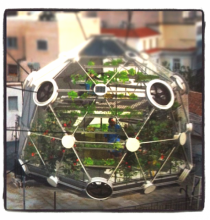fish

THE MORE I READ the story of Jonah nestled among the serious Minor Prophets of the Old Testament, the more fantastic and hilarious it gets. Everything is turned upside-down.
Jonah’s story follows Amos, who rips into rich people who “lie on beds of ivory and lounge on their couches.” It precedes Micah, whose Lord calls us “to do justice and to love kindness.” But Jonah spends his energy running away from Yahweh. In fact, Jonah is never even called a prophet in the book that bears his name. His interests and concerns are completely different from the Deity who has called him. Only entombment inside a “great fish” will drive his bedraggled, stinking self to the city that needs to repent. Even so, Jonah will perceive his surprising success as an utter failure.
But that’s getting ahead of the story. Most Hebrew prophetic books are collections of oracles unmoored to narrative, but Jonah’s tale has a setting, characters, and a plot! If you didn’t learn this in children’s Sunday school, here are the bare bones of the action:
Yahweh tells a man named Jonah to go east to the city of Nineveh to cry out against its evil. But Jonah flees in the opposite direction on a ship traveling west. A huge storm blows in, so when Jonah says it’s his fault, the sailors reluctantly throw him overboard. The storm immediately stops. A “great fish” swallows Jonah for three days and nights. Then God makes the fish vomit Jonah out on dry land.
In part two, Yahweh repeats his original imperative: Go to Nineveh and warn them of destruction. Jonah does so, expecting a fireball from heaven to burn the city to the ground. Instead, the king repents of his evil and asks all his subjects, as well as the animals, to demonstrate repentance by wearing sackcloth. So God changes God’s mind and does not destroy Nineveh. Jonah is angry because the Ninevites do not get what they deserve. He sulks under a bush God creates for him. The ensuing conversation underlines Jonah’s resistance to the merciful and loving character of Yahweh. The ending is ambiguous.
You can’t desire to catch the sacred fish
as much as he desires to be caught
& yet
he darts through the dim depths
with tail swerve & swish
laughs with the joy of glistening fins
at huge holes in your net
through which he swims
To get the shining coin from his mouth
is worth selling all you have
To get him even better
Everything you know about him
wavers in uneven light

According to our friends at Good.is, Buckminster Fuller'sgeodesic dome is making a comeback with urban farmers.
A new dome-based prototype promises an affordable method of rooftop aquaculture for apartment and commercial buildings—as the website calls it, getting "fish from the sky." The Globe / Hedron bamboo domewould house an aquaponics system—a mini-ecosystem in which plants clean the water where fish swim and fish waste fertilizes the plants—capable of feeding 16 people year-round. The unique structure of the dome, designed by Conceptual Devices, would support the weight of the fish tank, enabling installation on flat roofs without adapting the structure of the building. The design firm is partnering with Zurich-based group UrbanFarmers, which developed the aqauponic technology, and they're currently fundraising on indiegogo to get the project off the ground.